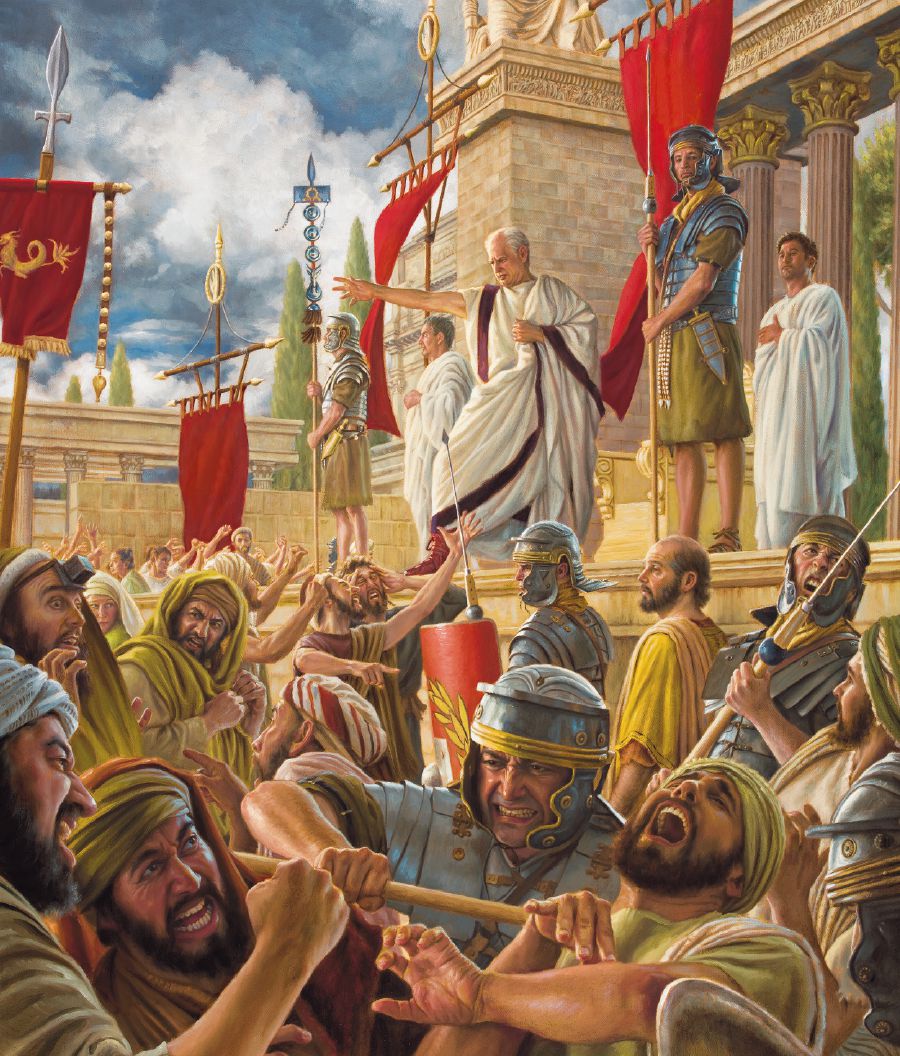APọl aḍighi ni oḍighi ophoghaam aloor, kuolọ akạr agbon oḍighi iphelhegbeel phọ
1-3. Eeghe kụ iḍighi kụ otelhedom mọ Pọl aghị bọ Korịnt, kụ eeghe ipaanhaạn kụ edị odị asoman?
1Bạl onhụ English
2 Bạl onhụ English
3 Bạl onhụ English
Oḍighi Abidị Pọ “Okọlọgh Ghan Arukpe Ologhoḍiọm Arugbogo” (Iiḍighi 18:1-4)
4, 5. (a) APọl arọl k’anhiạn epẹ Korịnt, kụ eeghe oḍighi kụ edị odị aḍighi ghan? (b) APọl atuughạ ika okọlọgh arukpe olhoghoḍiọm arugbogo?
4 Bạl onhụ English
5 Bạl onhụ English
6, 7. (a) APọl amhiịn ika oḍighi okolọgh arukpe olhoghoḍiọm arugbogo phọ, kụ eeghe kụ iḍeenhaan bọ mọ Akuilạ r’aPrisiIiạ umhoọgh aani ni eniin phọ ephoghom mọ? (b) Ika kụ idị aKristẹn rodon rodaphạn eḍeenhaan phọ aPọl, r’Akuilạ, r’aPrisiIiạ?
6 Bạl onhụ English
7 Bạl onhụ English
“Ibadị Abunọn Abuọ AKorịnt . . . Umeeraam Aani Ni” (Iiḍighi 18:5-8)
8, 9. APọl amhegheron ika kụ aghị esi isophoghom abuọ aJu phọ etigheri ikuph phọ odị ogbeelhom adom mọ oḅenhị abidị, kụ odị aḅilhẹ aghị eghẹn ogbeelhom adom mọ?
8 Bạl onhụ English
9 Bạl onhụ English
10. Eeghe kụ iḍeenhaan mọ aPọl o/sopha mọ onọ kagbeelhom dom mọ aḅenhị oginha abuọ areelhe phọ bịn?
10 Bạl onhụ English
11. Ika kụ idị Abugbaanhaạn aZihova rotuughaạny Pọl esi oghaạph adom mọ oḅenhị aani ukol aKristẹn?
11 Bạl onhụ English
“Ibadị Awe Amị Odi Ni Siẹn Emạ Phọ Ephẹn” (Iiḍighi 18:9-17)
12. APọl amhiịn eeghe uḍien dị aḍighi olọ okparamhị?
12 Bạl onhụ English
13. Eeghe kụ edị eeni aPọl aatughiạn ghan iduọn odị arọl bọ rapogh otu iiruẹn phọ, kuolọ odị alhegheri ika mọ ko/ḍighi nyinhọ iyaạr?
13 Bạl onhụ English

“With that he drove them away from the judgment seat.”—Acts 18:16
14, 15. (a) Abuọ aJu phọ ugbạ eeghe okpẹ kụ oḅạm emhụ aPọl, kụ uḍighi ika kụ aGaIio aḅẹm bọ mọ ka/ḍighiton? (b) Eeghe kụ imitenhaan Sostenis, kụ uḍighi ika kụ abuniin ootughiạn bọ mọ esighẹ rekị eeni odị aḍighi ni onyọ aKristẹn?
14 Bạl onhụ English
15 Bạl onhụ English
16. Ika kụ idị ikpo-onhụ Omoọgh-we phọ eḅẹm bọ mọ, “kaạph ni aghiọm, u/ḅoorian ghan! Mị odianaan ni r’anạ,” rikparamhị ghan iyira oghiọm aghisigh ogbeelhom adom mọ?
16 Bạl onhụ English
“Eḍighi Ni Itooghị Enaạn” (Iiḍighi 18:18-22)
17, 18. Eeghe kụ edị eeni aPọl aatughiạn ghan mem mọ odị rakị bọ Efesọs?
17 Bạl onhụ English
18 Bạl onhụ English
19, 20. APọl aḍighi eeghe mem mọ odị asi bọ Efesọs, kụ yira otuughạ eeghe esi odị ilọ ophorogh ghan asiigbu aruwaloor?
19 Bạl onhụ English
20 Bạl onhụ English